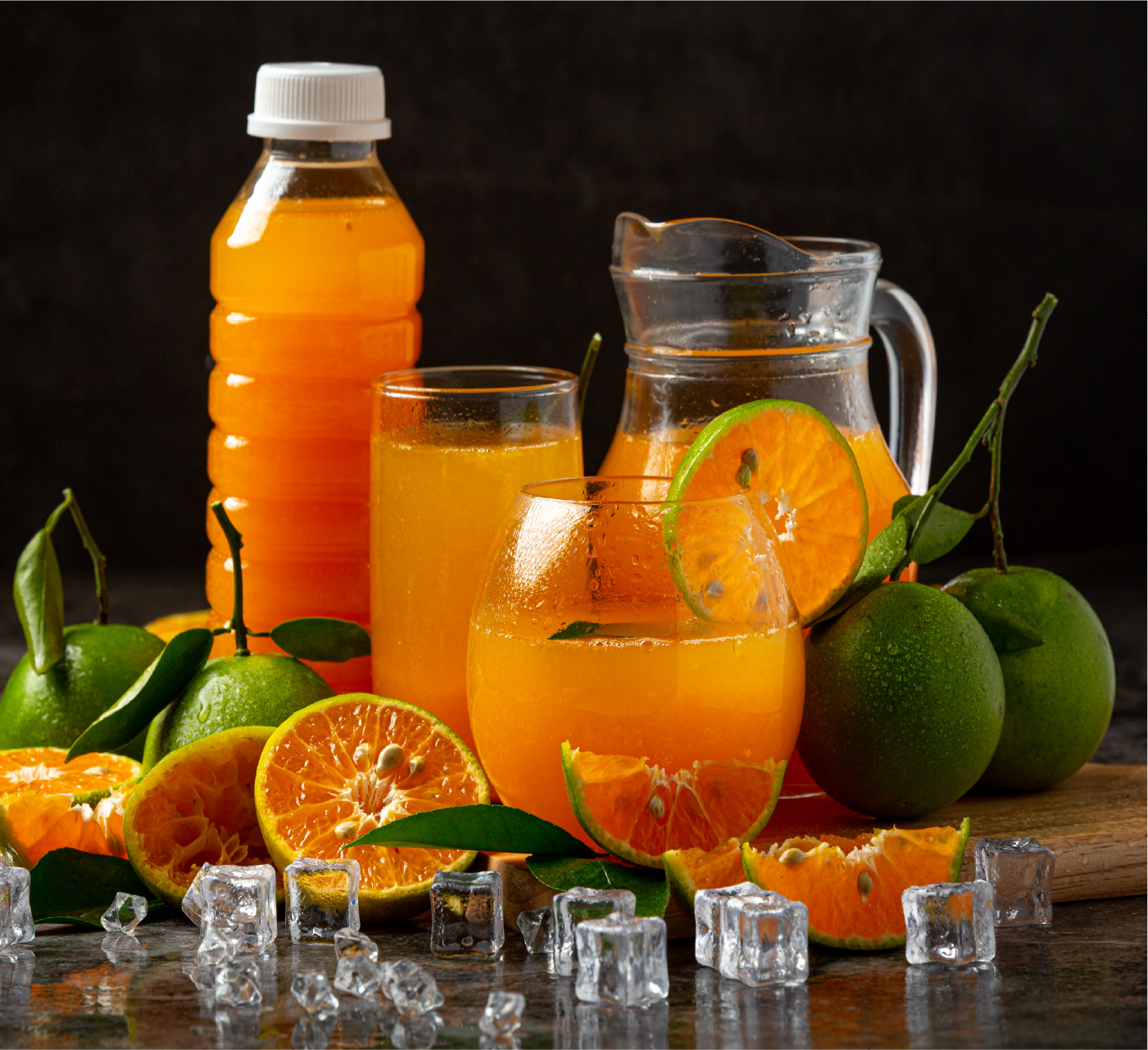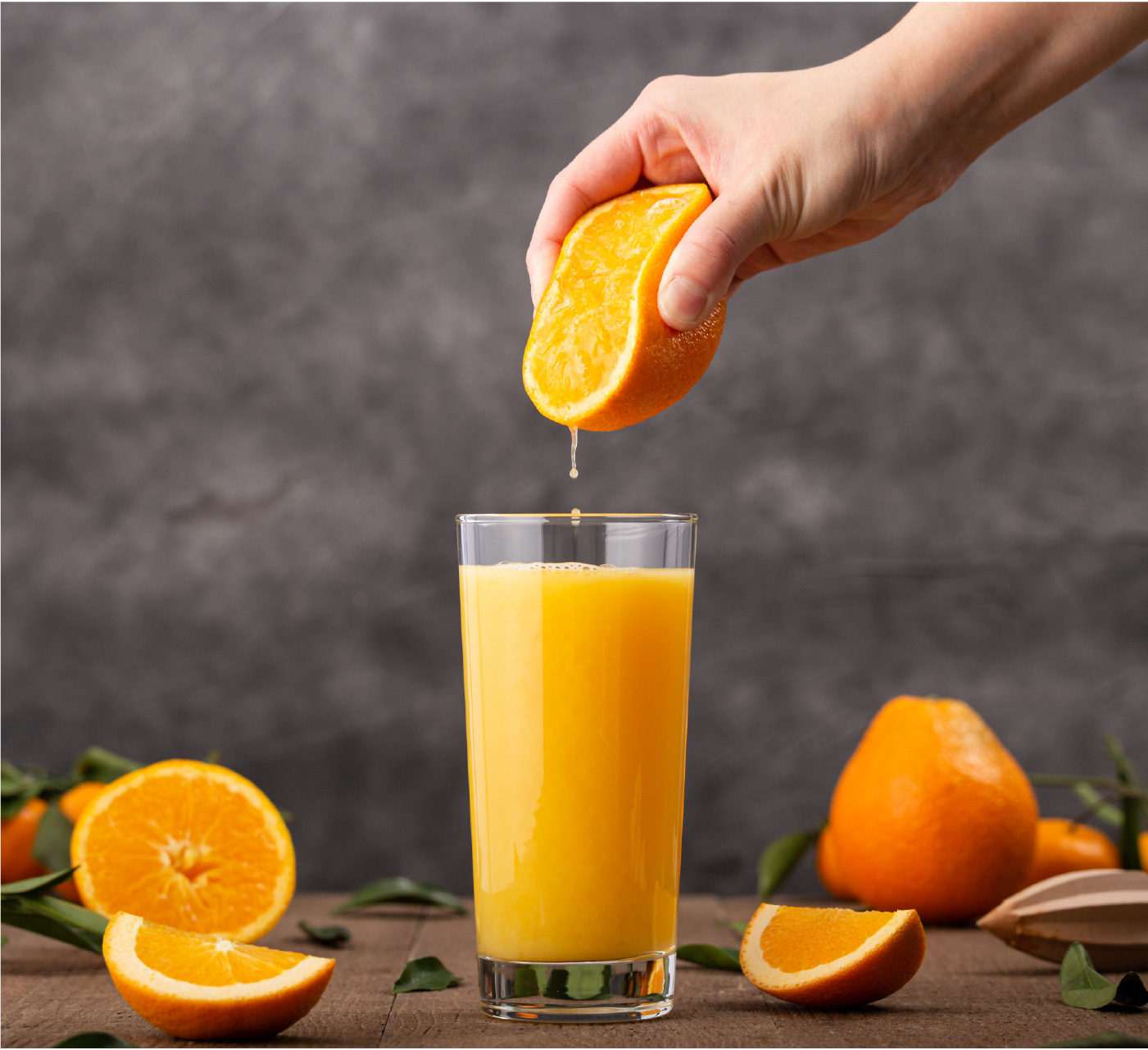A Nutty Delight for Health and Taste Kapiva A2 Desi Cow Ghee is a premium…
Read MoreDo you also start your day with a refreshing glass of your favourite fruit or vegetable juice?
According to one of the Category Reports in The Grocer, the trends in ready-to-drink juice consumption have increased and why won’t they? These juices offer convenience, comfort, cost-effectiveness, and nutrition, all at once.
But the tough part is having to choose between the kind of juices to prefer. If you are stuck between opting for regular juices or cold-pressed ones, we’re here to guide you.
With new technological developments rocking the food industry, it often becomes overwhelming for the consumers to decide which ones are the right ones for them. Considering a few scientific factors that are involved in the efficacy of certain juices, the next few sections of this blog would help you get further clarity.
Remember the lemon squeezer that your mother used to make lemonades with?
Cold-Pressed juices work on the same mechanism. Two metal plates at two ends squeeze the veggies or fruits placed between them.
That’s it. No spinning involved, no heat released, which happens in the case of regular juicers.
Cold-pressed juices neither use heat nor oxygen, thus retaining maximum nutrients. There are nutrients overloaded in these kinds of juices that help you enhance your overall health and also cleanse your body from within.
Carrots rich in potassium, fiber, and Vitamin C have potent antioxidant properties which are restored in cold-pressed blending. Watermelons, spinach in Vitamin A, Oranges, broccoli, and lemons, and vitamin C are all great for enhancing immune health.
If the micronutrients of these amazing fruits and veggies are lost, how would we enjoy their benefits?
As talked earlier, regular juicers have spinning blades that emit heat resulting in the loss of nutrients in the juice. While cold-pressed juicers only work on the crushing and pressing mechanism.
Mugdha Pradhan, functional nutritionist and founder of Pune-based ThriveFNC, describes cold-pressed juices as
“the ones made by crushing and pressing and the process claims to prevent oxidative and heat-induced damage to the end product.”
She also suggests that cold-pressed juices are healthier than the others as they contain no additives such as sugar or colour or any sort of added flavour in them.
Preservation of cold-pressed juices, their acidity, and temperature are some vital factors that improve their shelf-life and make them last longer than regular juices. A juice with a low pH i.e. higher acidity lasts longer than the one which has a higher pH and lower acidity.

Since cold-pressed juices involve high pressure and have low pH, enzymes and microbes that catalyze degradation are inactivated easily.
This is the reason why our cold-pressed Amla Juice made from fresh and ripe Amlas from Pratapgarh stays fresher and tastier for a longer period of time. Its rich Vitamin C content is thoroughly retained due to cold-pressing, thus deeming it to be a popular immunity booster.
Cold-pressed juices being crafted in a way to improve shelf-life and nutrient retention are made in high-pressure and low-temperature environments. Thus, they offer more nutrient retention than regular juices which might often degrade after a few hours of being juiced.
According to research found in the text, Principles, and Practices of Small-and Medium-Scale Fruit Juice Processing,
“Just after fruit juicing, the mixing of fruit enzymes with the substrate and air can rapidly initiate a number of enzymatic reactions that are capable of degrading nutrients and bioactive compounds, modifying pectin, and affecting color or flavor, among others. These enzymatic reactions, together with an endless number of chemical reactions involving oxygen, metal cations, and other juice constituents, can be extended during juice storage and produce significant quality losses.”
If you are experimenting with different juices or just curious about trying various combinations of fruits and veggies in a juice, you must be wondering what kind of process would suit you best.
While both kinds of juices could work well for you, it’s important to note that regular juices are good for immediate consumption as they might break down and degrade once coming in contact with air, thanks to the various fruit enzymes that catalyze this process.
So, if you’re looking to store this newly-created-combo in your refrigerator for a while, you might want to go with cold-pressed juices, as they are made at a higher pressure and lower temperature, thus, have a longer shelf-life.
Sedimentation is a marker of a juice’s natural state. But regular juices often turn out to be way chunkier due to irregular blending, striking a clear separation between water and fruits or vegetables.

In Cold-pressed juices, this separation is minimized as they are thoroughly blended, thus have a regular consistency. The fibrous pulp of these juices is already broken down while juicing them.
This is why you feel so energetic when you down a glass of cold-pressed juice, as the nutrients get to work right after entering our system.
Cold-Pressed juices are the new trendsetters of this era and we’re not surprised! With a promise of optimal nutrition in a time when we want to focus on our health the most, adding these juices to our daily diet is a win-win!


We are a team of food scientists and Ayurveda experts at Kapiva. Our mission is to raise awareness and educate people on ancient principles and herbs found in traditional texts. We work together to develop the most comprehensive content on Ayurveda which is grounded in peer-reviewed, scientific research.

A Nutty Delight for Health and Taste Kapiva A2 Desi Cow Ghee is a premium…
Read More
You would be pleased to know that the activity that most millennials love doing, comes…
Read More
A healthy urban lifestyle calls for that one indispensable main: a fully-functional immune system backed…
Read More
Modern day sedentary lifestyle has given rise to major health concerns and an absolute lack…
Read More